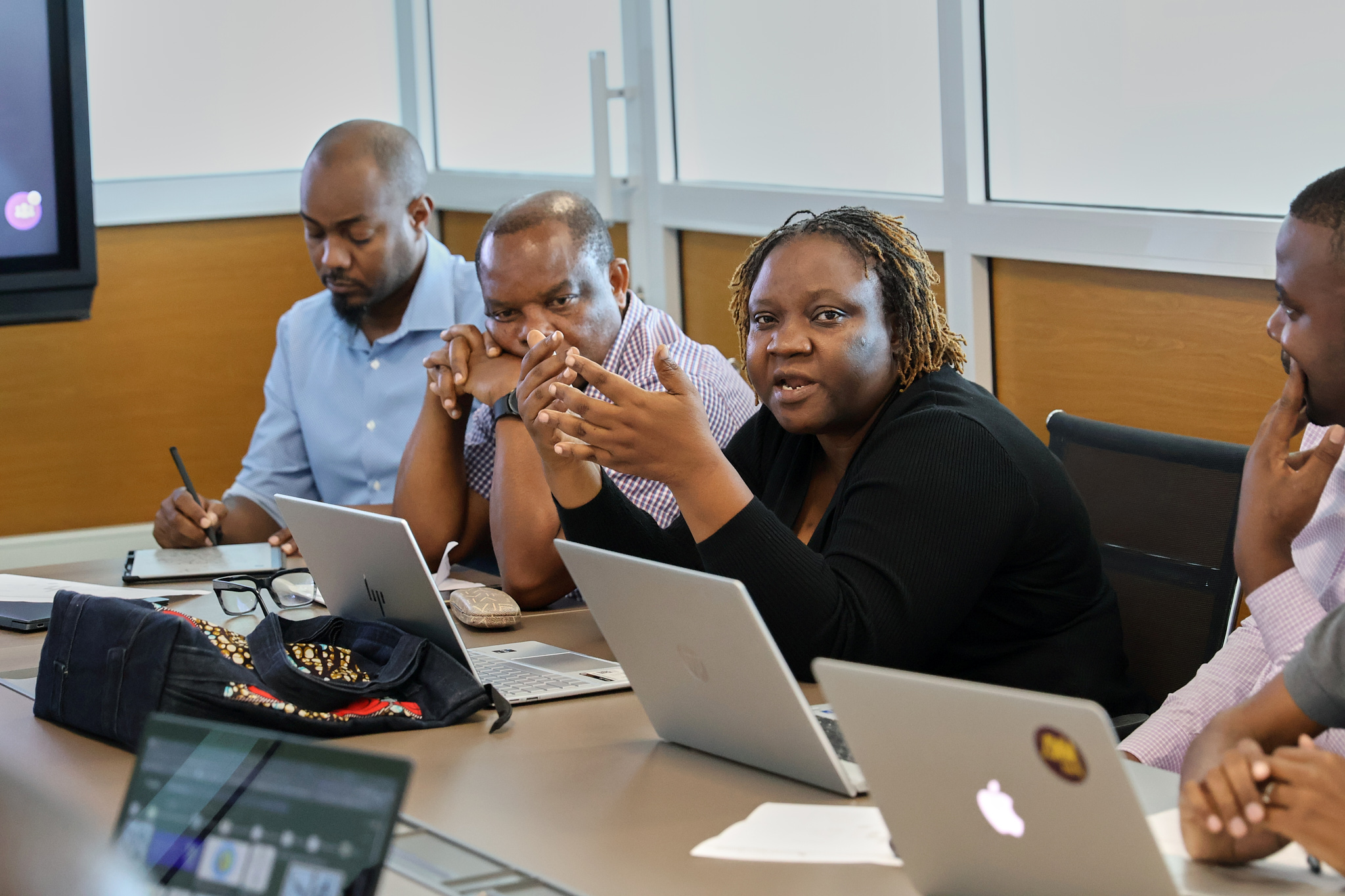
ENGAGEMENT: Data science, MAP and NMCP teams meet in Dar

The Ifakara Health Institute’s Data Science and Mathematical Modelling team hosted a two-day session with colleagues from Malaria Atlas East Africa Node (MAP EA Node) and the Tanzania’s National Malaria Control Programme (NMCP) in Dar es Salaam.
The engagement meeting aimed to strengthen collaboration and ensure that Ifakara’s research efforts address key questions of interest to NMCP and the Ministry of Health (MoH) in malaria prevention and control.
The session facilitated by Dr Samson Kiware, who leads the Data Science and Mathematical Modelling team aimed to ensure that ongoing projects at the institute solve real world challenges faced by NMCP and MOH. It included guided discussions and encouraged open exchange between researchers and NMCP colleagues.
Day 1: Community engagement, vector behaviour & costing tools
The first day featured a series of presentations from the Ifakara team, starting with “Role of community engagement in larviciding application – Scoping Review”, delivered by Gloria Shirima. This was followed by a presentation from Victoria Githu on “Improving the design of vector control trials”. Selemani Mbaga and Brian Masanja presented findings on “Impact of microclimatic conditions and seasons on behaviours of malaria vectors”. The day concluded with a session by Catherine on “Malaria costing Database”.
Day 2: Stratification, resistance & targeted interventions
The second day kicked off with “Update on malaria stratification from the National Malaria Control Program” by Dr. Sejununu Aron. Tajiri Laizer followed with a presentation on “Climatic clustering and its influence on malaria vectors in mainland Tanzania”. Gloria Shirima then returned to present “The impact of next generation nets over standard nets in Tanzania”. Nicholaus Mziray followed with a discussion on “Seasonal Malaria chemoprevention and the spread of SP resistance”.
The final session of the day was “Micro-stratification tool”, delivered by Dr Punam Amratia is a Senior Research Scientist and the Technical Lead of Malaria Atlas Project (MAP) Dar es Salaam, Mbaraka, and Dr Samson Kiware .
Journey of continued close collaboration ahead
Earlier this year, Ifakara Health Institute launched the Comprehensive Assessment of the Biology and Public Health Importance of Anopheles stephensi in Africa (AnoSTEP–AfriKa Project). This multi-country initiative seeks to assess the impact of Anopheles stephensi—one of the newest invasive malaria vectors—on malaria transmission across Africa. The project will work closely with MAP - DAR to inform the NMCP. Learn more about this here: AnoSTEP AfriKa
Dr. Charles Dismas Mwalimu, Head of the Vector Control Unit, NMCP expressed his gratitude to Ifakara for creating this platform. He advised that such updates should be held regularly to maximize impact and strengthen collaboration.
Dr. Sijenunu congratulated the team on the progress made, highlighting that their work is already supporting NMCP in making evidence-based decisions for future planning. She reaffirmed NMCP’s commitment to ongoing support and collaboration with the team.
Dr. Sam Kiware also thanked the NMCP for their participation and specifically acknowledged the Program Manager’s support. He emphasized that this meeting marks the beginning of more regular engagements with NMCP, ensuring that all activities with programmatic relevance receive timely input and guidance.
He noted that this meeting is especially valuable for the data team, which includes a significant number of PhD and master’s students who have gotten the experience working with policymakers first-hand. Dr. Dismas emphasized that these students could engage more closely with NMCP to address critical research questions that directly support national priorities.
The two-day meeting concluded with reflections from both teams, reaffirming their shared commitment to using data science and modelling to inform evidence-based decision-making in malaria control across Tanzania.
